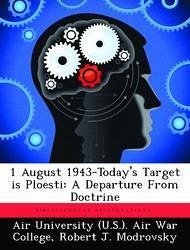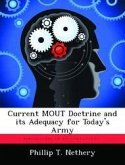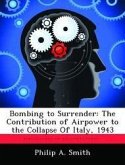The focus of this paper will be on the 1 August 1943 bombing raid on the Ploesti oil field and refineries by an American task force composed of bombardment groups of the Eighth and Ninth Air Forces. The Ploesti raid stood apart from the rest of the war in the air. The idea for it, and the unusual tactics employed, came from the top; it generated from General Arnold's headquarters and was approved by President Roosevelt. Winston Churchill called Ploesti "the taproot of German might." It was not a part of any particular campaign, but was considered vital in itself. It was painstakingly planned and executed relatively quickly by the best-prepared and most experienced force available at the time. It was also fought with unparalleled bravery, the sole action of the war for which five Congressional Medals of Honor were awarded. The purpose in examining Ploesti is to first gain a complete understanding of the events leading to the planning for the raid, the raid itself, and finally the impact on the Germans in its aftermath. With this established, the intent is to assess the raid while keeping one fascinating question in mind - after building a doctrine for twenty years based on high altitude, daylight, precision bombing, why, in its first major bombing effort, did the United States "depart from doctrine" and conduct a low level bombing mission on Ploesti, the only low-level bombing mission conducted in the war?
Hinweis: Dieser Artikel kann nur an eine deutsche Lieferadresse ausgeliefert werden.
Hinweis: Dieser Artikel kann nur an eine deutsche Lieferadresse ausgeliefert werden.








